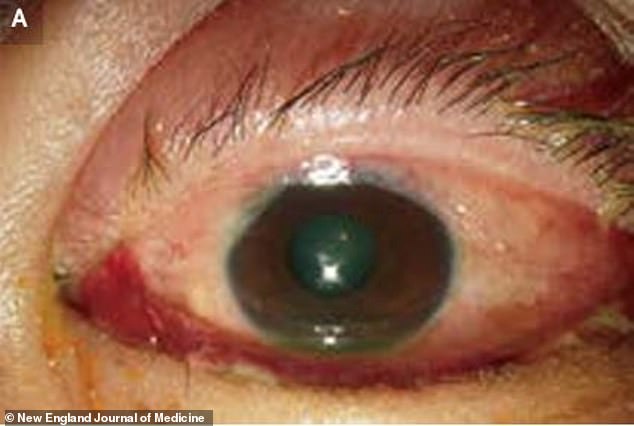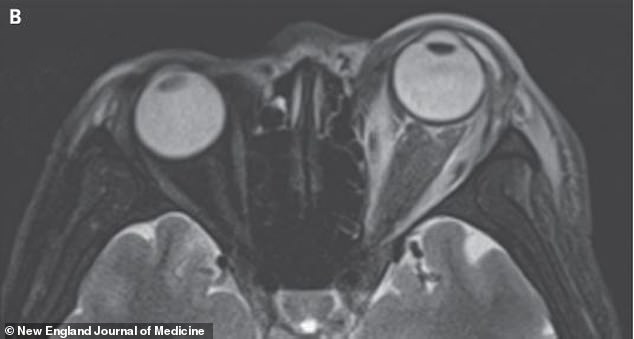Man, 44, becomes partially BLIND after falling asleep drunk and rupturing blood vessels in his eyeball
- A man in Taiwan became permanently blind overnight after sleeping on it
- The pressure had ruptured the blood vessels and caused fluid to build up
- READ MORE: A flesh-eating parasite almost left me BLIND in one eye
A man in Taiwan became permanently blind in one eye after a night of binge drinking and falling asleep face down.
The unnamed patient, 44, went to the emergency room in Puzi City, Taiwan, after three days of blindness and pain in his left eye.
He said the symptoms started after he started drinking and taking insomnia medications.
The patient had been unconscious for three hours and had fallen asleep in a position that put pressure on the affected eye.
When doctors examined him, the left pupil did not move or respond to light.
Experts wrote in the case report that the patient experienced ophthalmoplegia, meaning his eye muscles were paralyzed. The eye also bulged.
When doctors examined the unnamed patient, his left pupil did not move and did not respond to light

Pressure on the eye caused the blood vessels to rupture, leading to bleeding
The team found that the pressure on the eye caused the subconjectival blood vessels, which are located just beneath the clear surface of the eye, to rupture.
This led to bleeding and the tissue around the eye became swollen. The patient was diagnosed with ischemic optic neuropathy (ION) and choroidopathy.
ION occurs when blood does not flow properly to the eye’s optic nerve, which carries signals from the eyes to the brain and converts them into visible images, leading to vision loss.
Vision loss due to ION is usually permanent, because the optic nerve eventually stops working properly and dies. However, patients with ION tend to still have some peripheral vision.
People with conditions such as high blood pressure, high cholesterol, heart disease and diabetes are at greater risk of developing ION because they can hinder blood circulation.

The patient’s left eye also protruded outwards due to the injury
Choroidopathy, meanwhile, is a disease that causes fluid to build up under the retina, the layer at the back of the eye that captures light and translates it into images.
Symptoms typically include faint and blurry blind spots in the center of the field of vision, distortion, and objects that appear smaller or further away than they actually are.
“Historically, this condition was known as ‘Saturday night retinopathy’ due to its association with the use of alcohol and sedatives,” the experts wrote.
‘There is no consensus on the management of the condition.’
The patient was given high doses of steroids to prevent the pressure from worsening.
Although some people report regaining their sight, this patient reported still being blind in his left eye after four months.
The case report was published in the New England Journal of Medicine.
